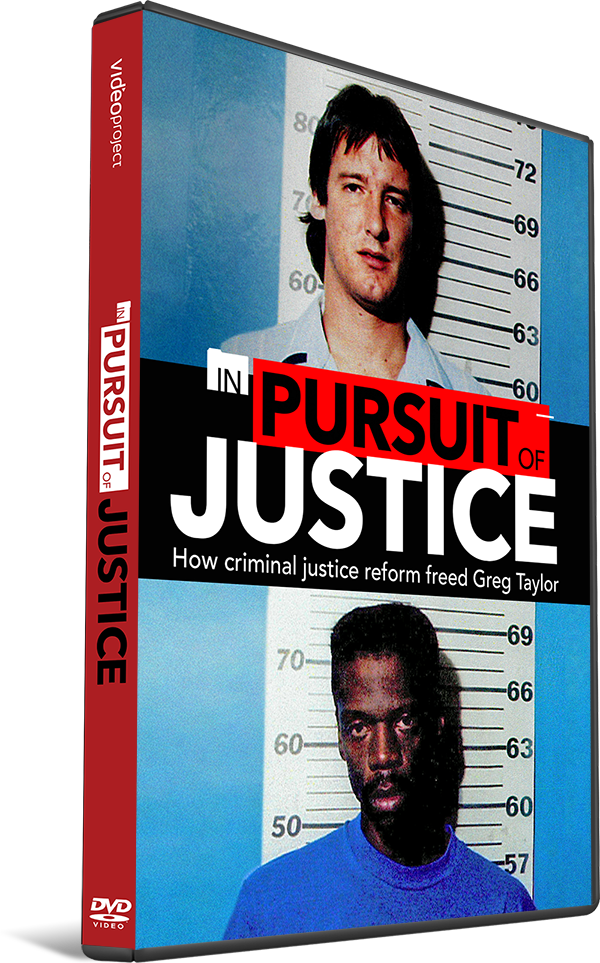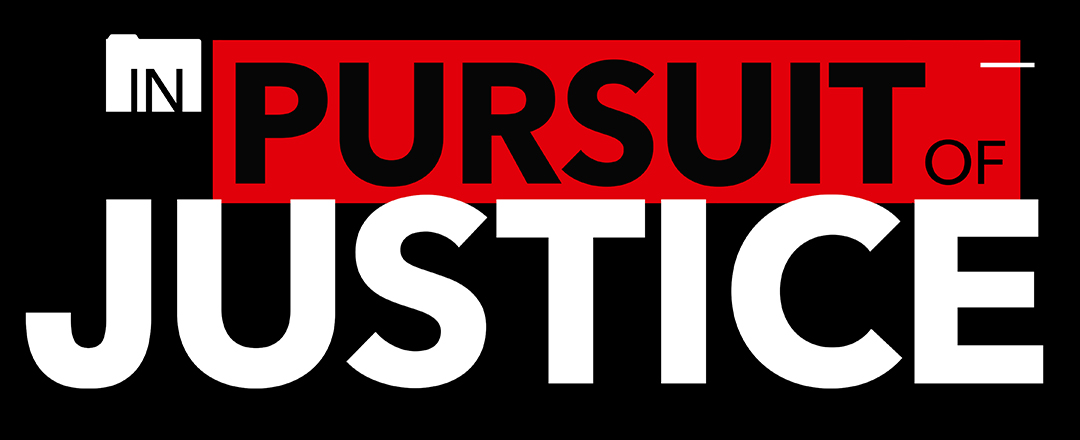About the Film In Pursuit of Justice
What happened to Greg on the day he was arrested can happen to anyone.
“Sometimes,” Campbell law professor Anthony Baker told us, “you don’t pick the project, the project picks you.” That is exactly the way we feel about this project.
In the fall of 2009 we were hired to create a profile of Chris Mumma, the Executive Director of the North Carolina Center on Actual Innocence. Chris had been instrumental in reforming many of the procedures used by North Carolina’s police and prosecutors to help insure fewer wrongful convictions, had helped craft legislation forming the new North Carolina Innocence Inquiry Commission, and had successfully freed Dwayne Dail, a wrongfully incarcerated man who had spent 19 years in prison. For this work Chris had won the Z. Smith Reynold’s Foundation’s Nancy Susan Reynolds Award for Advocacy. The video we made of her was shown at the awards luncheon. Watch Video.
During her acceptance speech Chris told the audience to pay attention to the news because something exceptional was going to happen in the North Carolina Courts.
Two weeks later Chris asked if we wanted to document Greg Taylor’s care. Greg was convicted of murdering Jacquetta Thomas in 1993. For thirteen years his family had done everything they could to gain his freedom. By 2006 they were out of options. Then, fortuitously, Greg’s written copy of the details of his case found its way into Chris’ hands. As the director of the North Carolina Center on Actual Innocence (NCCAI), Chris sees hundreds of innocence claims a year. She evaluated Greg’s case and agreed to take it on. But after three years of work, and limited by appellate laws, she realized that she would be unable to find the evidence she needed to gain Greg his freedom. So, she referred the case to the North Carolina Innocence Inquiry Commission. Chris knew the NCIIC well, while she had been the law clerk for Chief Justice I. Beverly Lake, Jr., she had helped to write the legislation that created the agency. The NCIIC is an independent, state-supported agency specifically created to examine post-conviction claims of innocence. The NCIIC’ s unique process allows ALL case evidence and records to be examined. It has fulltime investigative staff and has subpoena power; college Innocence Projects and organizations like Chris’, lack both. The NCIIC was, and still is, unique in the US.
By November of 2009, Greg’s case had been through the first two stages of the NCIIC process – the investigation had been completed and presented to the agency’s Commissioners. During a two day hearing in September, the commissioners heard the evidence and voted, unanimously, to send Greg’s case to the final step of the NCIIC process, a hearing before three judges.
It was at this point that Chris called and asked if we’d be interested in documenting Greg’s case. While it was possible Greg could be the first person released through this process it was every bit as likely that the judges would refuse to release him and would send him back to prison. Of course, we jumped at the chance.
For the next two months, whenever the phone rang, we would drop everything, get in the car and drive from Winston-Salem to Raleigh to record an interview or cover an event. If we needed something to inspire us to keep going we got it on the afternoon of February 17, 2010 when the three judges all ruled that Greg was innocent of the murder of Jacquetta Thomas.
The years that followed have been filled with lessons in perseverance, patience, and understanding. As, we suspect, happens with all independent films, there are times you make great progress and times everything grinds to a halt. Things that you think would take a couple of weeks take four months. And often financial reality (and the day job) just hit you in the face and it’s time to earn some money.
But the hard work paid off. On April 20, 2018 we premiered the film to a packed house at the RiverRun International Film Festival. Since then we have screened the film at 15 other festivals and won 8 awards. And, we have licensed the film to The Video Project, an educational distributor based out of San Francisco.
Despite the delays, the hurdles, and the challenges there has never been a question about not telling this story. Perhaps Prof. Baker was correct when he says that sometimes the project chooses you.

In Pursuit of Justice
This film is available to educational institutions, and community groups through our distributor, The Video Project.
